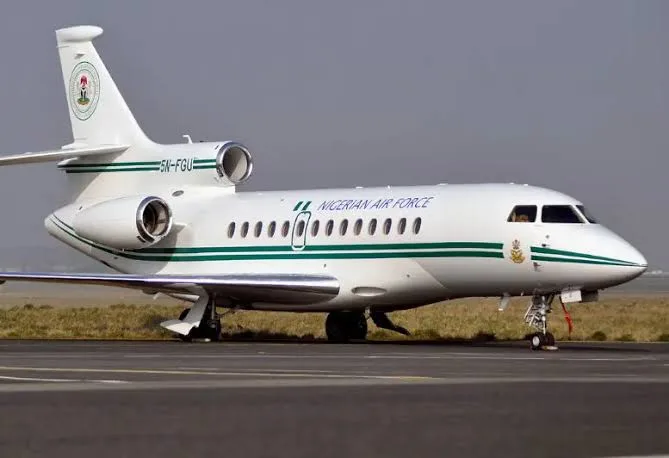The remains of former President Muhammadu Buhari departed London on Tuesday morning aboard a Nigerian Air Force aircraft, en route to his hometown of Daura in Katsina State for a state burial.
The body of the late Nigerian leader, who passed away on Sunday, July 13, 2025, at the age of 82, was accompanied by Vice President Kashim Shettima, Chief of Staff to the President Femi Gbajabiamila, and other top government officials.
President Buhari died at approximately 4:30 p.m. in a London hospital following a prolonged illness, the details of which were not publicly disclosed.
President Bola Tinubu is expected to receive the body in Katsina around noon on Tuesday. In honour of the former president, the Federal Government has declared Tuesday, July 15, 2025, a public holiday to mark the state burial in Daura, his rustic and agrarian hometown in Nigeria’s North-West region.
A political life of influence and contradictions
Born in Daura, Buhari became a symbol of austere leadership and military discipline. Known for his ramrod-straight posture and frugal lifestyle, he earned the nickname “Baba Buhari” across northern Nigeria, where he commanded an almost cult-like following.
Buhari first led Nigeria as military Head of State from January 1984 to August 1985, following a coup that ousted a civilian government. His tenure was marked by a strict anti-corruption drive and a focus on discipline, though it drew criticism for human rights violations and press restrictions.
After Nigeria’s return to democracy in 1999, Buhari contested for the presidency three times—in 2003, 2007, and 2011—garnering over 12 million votes each time but falling short of victory.
In 2013, his party, the Congress for Progressive Change (CPC), merged with Bola Tinubu’s Action Congress of Nigeria (ACN), along with factions of the Peoples Democratic Party (PDP) and All Progressives Grand Alliance (APGA) to form the All Progressives Congress (APC).
The merger paved the way for Buhari’s historic victory in 2015. Running alongside Yemi Osinbajo, Buhari defeated incumbent President Goodluck Jonathan, marking the first time in Nigeria’s Fourth Republic that an opposition candidate unseated a sitting president.
Buhari and Osinbajo were re-elected in 2019 and handed over power to President Tinubu and Vice President Shettima on May 29, 2023.
Buhari’s presidency was defined by a high-profile anti-corruption campaign and a focus on infrastructure development. However, his tenure was also marred by major corruption scandals involving key appointees. Critics accused him of failing to exercise adequate oversight, though his allies, including former spokesman Garba Shehu, have pushed back against such claims.
As Nigeria prepares to lay him to rest, the late president is being remembered as a towering figure in the country’s political landscape—one whose leadership style, convictions, and legacy will continue to shape national discourse for years to come.


